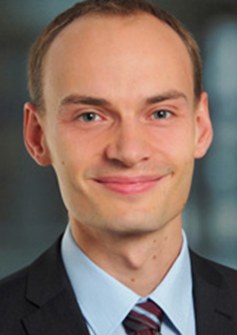
Wanja Wiese
Wanja Wiese is currently a postdoctoral assistant researcher and lecturer in philosophy at Johannes Gutenberg University of Mainz, Germany. His research centers on consciousness, mental representation, philosophy of cognitive science, and philosophy of mind.
- Website 1
For more details visit the contributor's
PPP Contributions
Wanja Wiese also contributed to Open MIND:
Publications
-
Wiese, W. (in press). Experienced Wholeness. Integrating Insights from Gestalt Theory, Cognitive Neuroscience, and Predictive Processing. Cambridge, MA: MIT Press.
-
Wiese, W. (2016). Action is enabled by systematic misrepresentations. Erkenntnis. DOI: 10.1007/s10670-016-9867-x http://link.springer.com/article/10.1007/s10670-016-9867-x
-
Wiese, W. (2016). How to solve the problem of phenomenal unity: finding alternatives to the single state conception. Phenomenology and the Cognitive Sciences. DOI: 10.1007/s11097-016-9478-7 http://link.springer.com/article/10.1007/s11097-016-9478-7 (OPEN ACCESS)
-
Wiese, W. (2016). What are the contents of representations in predictive processing? Phenomenology and the Cognitive Sciences. DOI: 10.1007/s11097-016-9472-0 http://link.springer.com/article/10.1007%2Fs11097-016-9472-0
-
Wiese, W. (2015). Perceptual presence in the Kuhnian-Popperian Bayesian brain - A Commentary on Anil K. Seth. In T. Metzinger & J.M. Windt (Eds.) Open MIND: 35(C). Frankfurt am Main: MIND Group. DOI: 10.15502/9783958570207 http://open-mind.net/papers/perceptual-presence-in-the-kuhnian-popperian-bayesian-brain-a-commentary-on-anil-seth-wanja-wiese
-
Also in: Metzinger, T., & Windt, J.M. (Eds.) (2016). Open MIND, Vol. 2. Cambridge, MA: MIT Press, pp. 1475-1493.
-
Wiese, W. (2014). Jakob Hohwy: The Predictive Mind. Minds and Machines 24(2), 233-237. DOI: 10.1007/s11023-014-9338-6.
-
Wiese, W., and Metzinger, T. (2012). Desiderata for a mereotopological theory of consciousness: First steps towards a formal model for the unity of consciousness. In S. Edelman, T. Fekete, and N. Zach (Eds.), Being in Time. Dynamical models of phenomenal experience. Amsterdam: John Benjamins Publishing Company.
